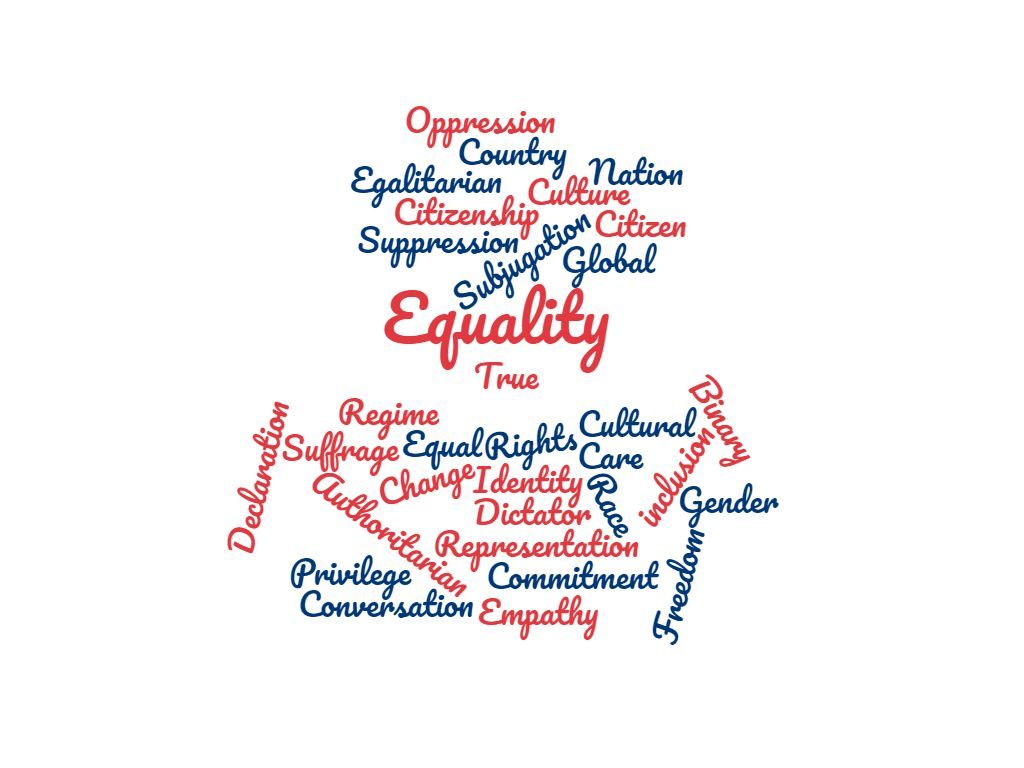
This is a word cloud that I created using the key terms from my “Citizens!” course. The meaning of the design of this word cloud has two major aspects. The first is that it is presented in the colors of the American flag because before all else, this was a class about being an American citizen and focused on American history. The second aspect is that I chose to make it in the shape of a person, although it may be hard to tell. I chose to use the figure of a person because the many different aspects of this class all have to do with people, whether it be the way they are treated or the equality they have. People are the only one’s who can be citizens and the fact that we are all people should unite us as citizens. The idea of the outline of a person is also powerful because it can be anyone, everyone is represented in that outline and can identify to it which is a rare thing in our democracy.